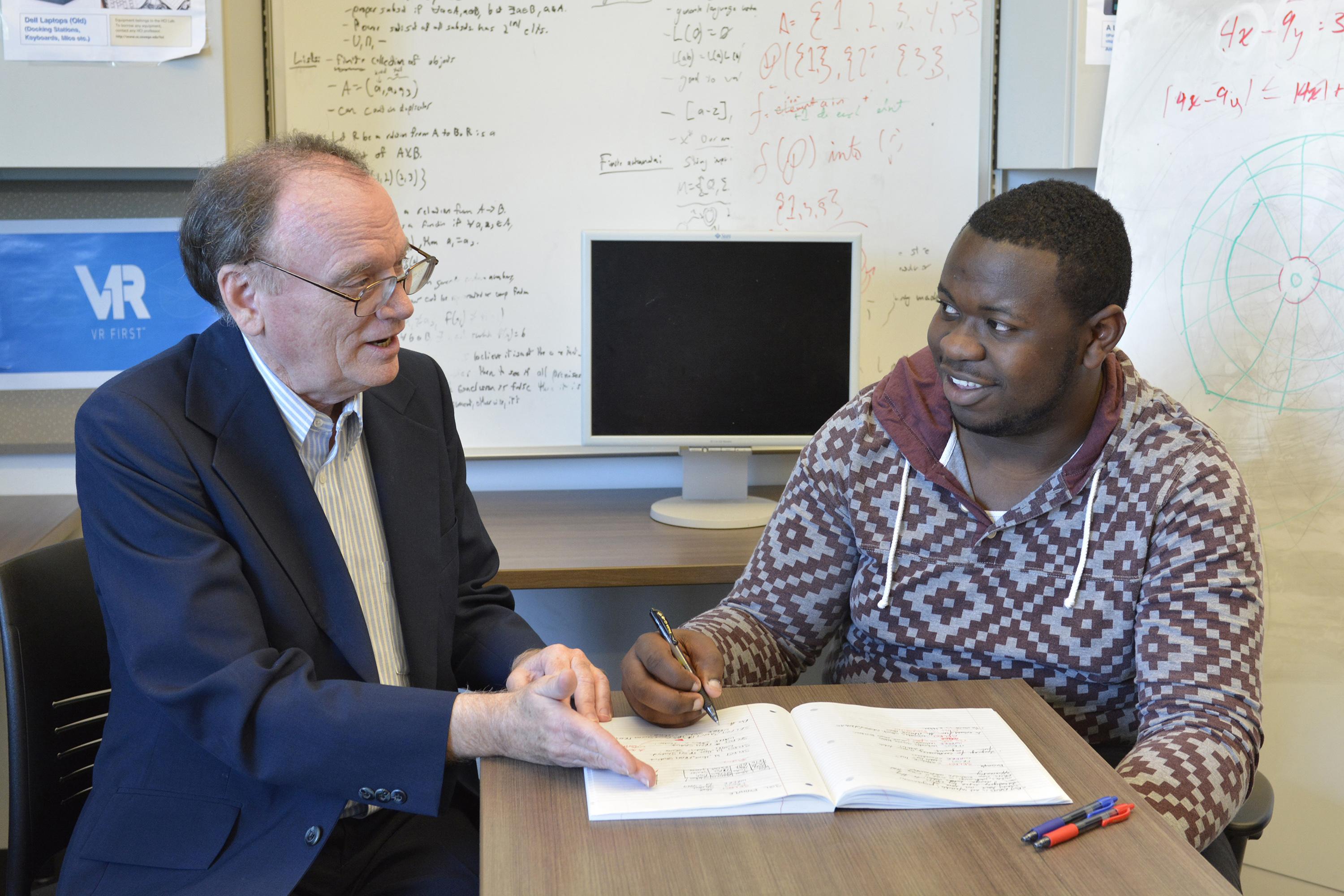Digital humanities -- David Vampola (left) of SUNY Oswego's computer science faculty speaks with junior information science major Kingsley Ibezim, who recently added the digital new humanities minor. Vampola calls digital humanities "the marriage of the technical with the traditionally non-technical."
The computer age meets the study of traditional disciplines -- literature, history, philosophy and more -- in digital humanities, a new minor at SUNY Oswego.
Broadly defined as a multidisciplinary, collaborative academic field that applies modern computational tools and information science to the arts, linguistics, cultural studies and others, digital humanities as a minor launched this fall.
Computer science faculty member David Vampola developed and now coordinates the new minor, with instructional support from faculty members teaching courses in such majors as English, history, linguistics, cognitive science and others.
"This is the marriage of the technical with the traditionally non-technical," Vampola said. "This generation (of college students) grew up with computers. They are already conversant with some of the techniques used in research and the presentation of data in the digital humanities."
Textual analysis of Shakespeare, applying hypertext markup language to an art exhibition and comparative analysis of the ways different societies developed science over time are examples of the ways digital humanities can deepen understanding.
'Exciting intellectual adventure'
"I see digital humanities as an exciting intellectual adventure," Vampola said. "It is an endeavor that widens the horizon for students and scholars of the humanities."
For years, Vampola has taught "Introduction to Digital Humanities," which helps students understand how information technology, computational methods and cognitive approaches can assist the presentation and analysis of data in the humanities.
Cognitive science has long taken a multidisciplinary approach to studying the mind and consciousness, particularly in how people interact with computers. Information science, likewise, focuses not only on gaining technical expertise, but also on understanding people's information needs and the social effects of information technology.
Junior information science major Kingsley Ibezim took "Introduction to Digital Humanities" in 2015. He recently added digital humanities as a second minor, along with business administration.
"I was speaking with (Vampola) about where can I go with my degree," Ibezim said. "I like the tie-in with cognition, the way people think." Eventually, he would like to be in user interface/user assistance design as a software developer, deciding how apps can help people.
Core courses in the new minor include both an introductory and senior seminar in the digital humanities, as well as a class in computer programming. Electives come from courses taking a digital humanities approach taught by Fiona Coll and Douglas Guerra in English, Murat Yasar and Candis Haak in history, and Caglar Yildirim in the graduate program in human-computer interaction, as well as other faculty members.
For more information, contact Vampola at david.vampola@oswego.edu.




